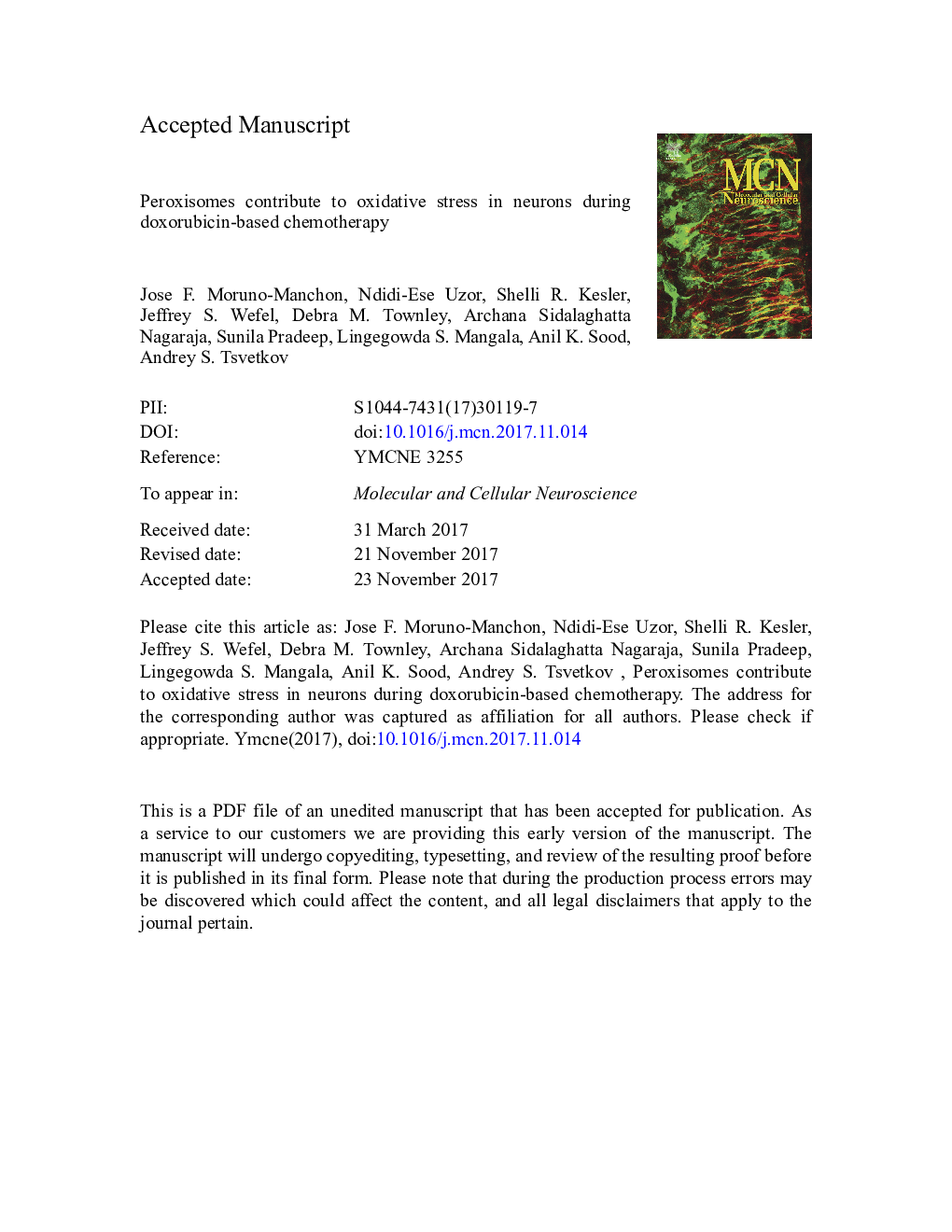| کد مقاله | کد نشریه | سال انتشار | مقاله انگلیسی | نسخه تمام متن |
|---|---|---|---|---|
| 8478415 | 1551120 | 2018 | 26 صفحه PDF | دانلود رایگان |
عنوان انگلیسی مقاله ISI
Peroxisomes contribute to oxidative stress in neurons during doxorubicin-based chemotherapy
ترجمه فارسی عنوان
پراکسیزوم ها در طی استفاده از شیمی درمانی دکسوروبیسین به استرس اکسیداتیو در نورون کمک می کنند
دانلود مقاله + سفارش ترجمه
دانلود مقاله ISI انگلیسی
رایگان برای ایرانیان
کلمات کلیدی
دوکسوروبیسین، شیمی درمانی، پیری مغزی، پراکسیزوم
موضوعات مرتبط
علوم زیستی و بیوفناوری
بیوشیمی، ژنتیک و زیست شناسی مولکولی
بیولوژی سلول
چکیده انگلیسی
Doxorubicin, a commonly used anti-neoplastic agent, causes severe neurotoxicity. Doxorubicin promotes thinning of the brain cortex and accelerates brain aging, leading to cognitive impairment. Oxidative stress induced by doxorubicin contributes to cellular damage. In addition to mitochondria, peroxisomes also generate reactive oxygen species (ROS) and promote cell senescence. Here, we investigated if doxorubicin affects peroxisomal homeostasis in neurons. We demonstrate that the number of peroxisomes is increased in doxorubicin-treated neurons and in the brains of mice which underwent doxorubicin-based chemotherapy. Pexophagy, the specific autophagy of peroxisomes, is downregulated in neurons, and peroxisomes produce more ROS. 2-hydroxypropyl-β-cyclodextrin (HPβCD), an activator of the transcription factor TFEB, which regulates expression of genes involved in autophagy and lysosome function, mitigates damage of pexophagy and decreases ROS production induced by doxorubicin. We conclude that peroxisome-associated oxidative stress induced by doxorubicin may contribute to neurotoxicity, cognitive dysfunction, and accelerated brain aging in cancer patients and survivors. Peroxisomes might be a valuable new target for mitigating neuronal damage caused by chemotherapy drugs and for slowing down brain aging in general.
ناشر
Database: Elsevier - ScienceDirect (ساینس دایرکت)
Journal: Molecular and Cellular Neuroscience - Volume 86, January 2018, Pages 65-71
Journal: Molecular and Cellular Neuroscience - Volume 86, January 2018, Pages 65-71
نویسندگان
Jose F. Moruno-Manchon, Ndidi-Ese Uzor, Shelli R. Kesler, Jeffrey S. Wefel, Debra M. Townley, Archana Sidalaghatta Nagaraja, Sunila Pradeep, Lingegowda S. Mangala, Anil K. Sood, Andrey S. Tsvetkov,
